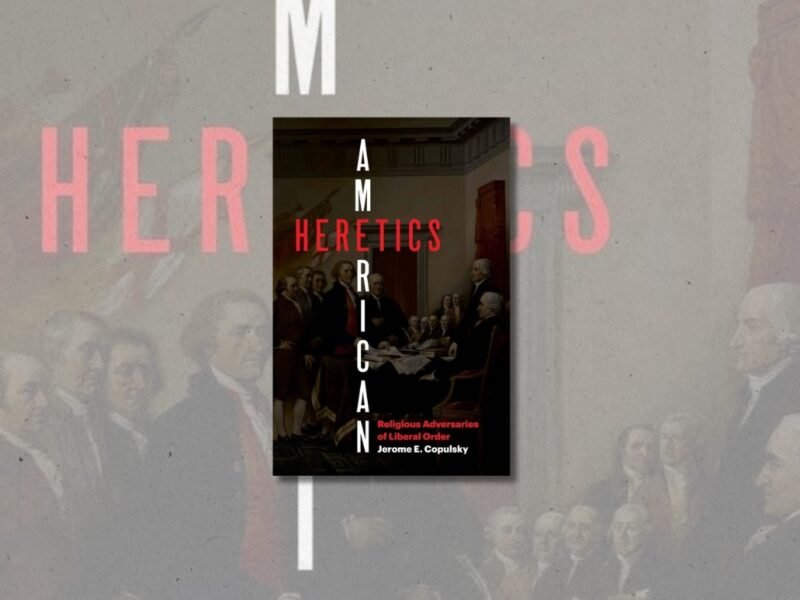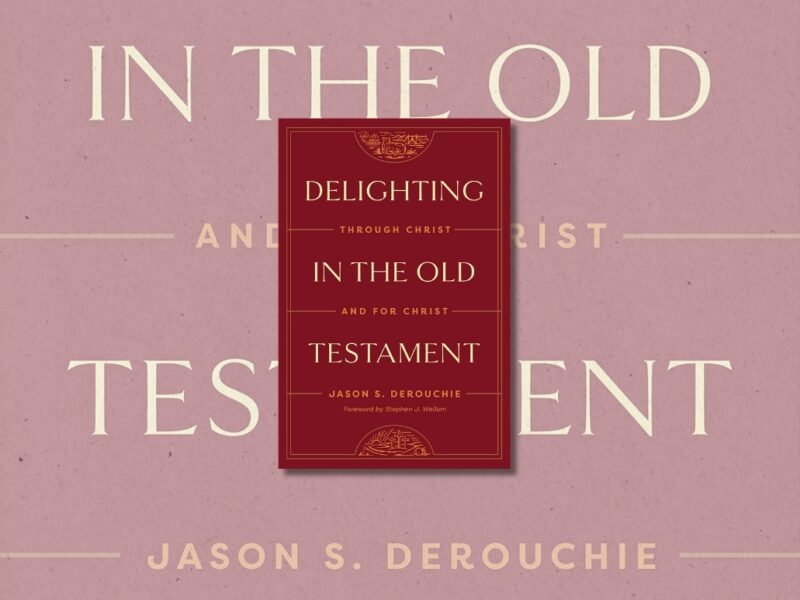John Davenant’s Hypothetical Universalism: A Defense of Catholic and Reformed Orthodoxy. By Michael J. Lynch. New York: Oxford University Press, 2021. 272 pp. $99.00 (cloth).
Believing that Christ died only for the elect is often considered an essential part of what it means to be Reformed. The official blurb for From Heaven He Came and Sought Her exemplifies this attitude, characterizing the doctrine as a “foundational tenet of Reformed theology.” J. I. Packer concurs with this judgment in the book’s foreword: “As the Reformed faith and its pastoral corollaries is the true intellectual mainstream of Christianity, so the belief in definite, particular, and sovereignly effectual redemption…is its true intellectual center” (13).
Similar claims have been made about the doctrine of the perseverance of the saints, which holds that those who have saving faith can never lose it. As Jay T. Collier shows, however, there has historically been room within the Reformed tradition for those who dissent from this teaching, notwithstanding contemporary claims to the contrary.
Fortunately, in John Davenant’s Hypothetical Universalism Michael J. Lynch has done for the doctrine of limited atonement (or “definite atonement,” as its defenders call it) what Collier does for the perseverance of the saints. As Lynch observes, in making limited atonement a touchstone of Reformed identity, “Scholars have often too narrowly defined the Reformed tradition, leaving theological positions that fall within the bounds of Reformed orthodoxy outside the tradition” (3). In response to this tendency, Lynch “[examines] Davenant’s hypothetical universalism in the context of early modern Reformed orthodoxy” and argues that “Davenant’s version of hypothetical universalism represents a significant strand of the Augustinian tradition, including the early modern Reformed tradition, over and against the popular—albeit inaccurate—thesis that his hypothetical universalism was a via media between Reformed orthodoxy and Arminianism” (18‒19).
The first few chapters “[place] Davenant’s hypothetical universalism in its broader historical context” (19), covering the patristic and medieval scholastic eras (chapter 2), Reformation and post-Reformation debates (chapter 3), and the Synod of Dordt (chapter 4). The rest of the book exposits Davenant’s hypothetical universalism as expressed in his De Morte Christi (chapter 5), with additional focus given to “two aspects of Davenant’s theology closely related to his exposition of hypothetical universalism: his covenant theology [chapter 6] and his doctrine of the divine will [chapter 7]” (21).
Though I cannot do justice to the depth of Lynch’s discussion here, I will mention a few basic points to help orient potential readers. First, despite the similarity between the two terms, hypothetical universalism is not to be confused or associated with universalism, which is the belief that all will ultimately be saved. Lynch defines hypothetical universalism as follows:
Broadly considered, we understand early modern hypothetical universalism to teach (1) that Christ died for all human beings in order to merit by his death the possibility of the redemption of all human beings on condition of their faith and repentance. All human beings, on account of the death of Christ, are redeemable or savable—that is, able to have their sins remitted according to divine justice. Further, (2) early modern hypothetical universalism affirmed that God, by means of the death of Christ, purchased, merited, or impetrated all the to-be-applied saving graces for the elect, and for the elect alone. Christ died for the apostle Peter in a way he did not die for Judas. (15, italics mine)
Second, the key difference between hypothetical universalism and limited atonement is that the former maintains Christ died for all, not in the sense that all people will actually be saved, but in the sense that it is possible for all people to be saved, provided they repent and believe the gospel. At the same time, as the definition quoted above states, Christ died for the elect in a way that he did not for the non-elect, in that his death actually purchases redemption for the elect. This distinction was captured by the medieval scholastic Peter Lombard in what is often called the Lombardian formula: “Christ died sufficiently for all; efficiently for the elect” (3).
Third, it is Davenant’s hypothetical universalism being defended in this book, as opposed to other variants of hypothetical universalism such as Amyraldianism. This is significant because in the past, Davenant’s position “has been lumped together with later positions found among the Reformed, most notably French Amyraldianism. This lumping together of the two positions has resulted in the unsubstantiated assumption that later critiques of Amyraldianism largely correspond with Davenant’s own position” (162).
Davenant, for his part, believed his hypothetical universalism “was simply a continuation of an extensive antecedent trajectory of Reformed theology that affirmed the Lombardian formula by teaching an ordained sufficiency and universal satisfaction” (161). This trajectory included both “the best of the medieval tradition” and other “Reformed theologians as eminent as Melanchthon, Calvin, Musculus, Bullinger, Ursinus, and Pareus, to name but a few” (19).
In short, Davenant took his hypothetical universalism to be simply catholic. Indeed, he believed that apart from hypothetical universalism the gospel offer cannot sincerely be made to all:
Arguably, at the heart of Davenant’s hypothetical universalism is his desire to justify the gospel offer to the reprobate. Of course, this is not to say that he holds his position on merely pragmatic grounds. Nevertheless, for Davenant, a universal gospel offer demands a universal remedy. Put somewhat differently, a minister of the gospel cannot genuinely or sincerely offer Christ and his benefits to those for whom Christ did not die. (135)
Given these considerations, Lynch’s erudite and well-sourced exposition of Davenant’s hypothetical universalism should be of great interest to all Christians, but especially those who aspire to be both Reformed and catholic. The current price tag is admittedly off-putting, but there is reason to hope that a cheaper paperback edition will be available at some point. For those considering taking the plunge now, rest assured that Lynch’s careful and informative treatment will not disappoint.






'Book Review: “John Davenant’s Hypothetical Universalism”' has 1 comment
November 12, 2022 @ 6:47 am Ron
Hypothetical Universalism can be shown to be an impossible theory. https://philosophical-theology.com/2022/11/11/the-impossibility-of-the-possibility-entailed-by-hypothetical-universalism/
It can also be shown that it should not be considered confessional. https://philosophical-theology.com/2022/10/31/john-davenant-another-enticement-for-the-reformed-in-name-only/